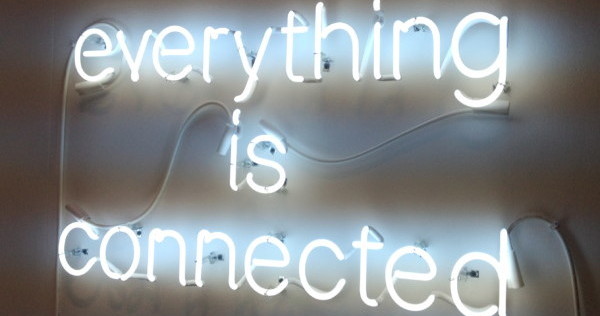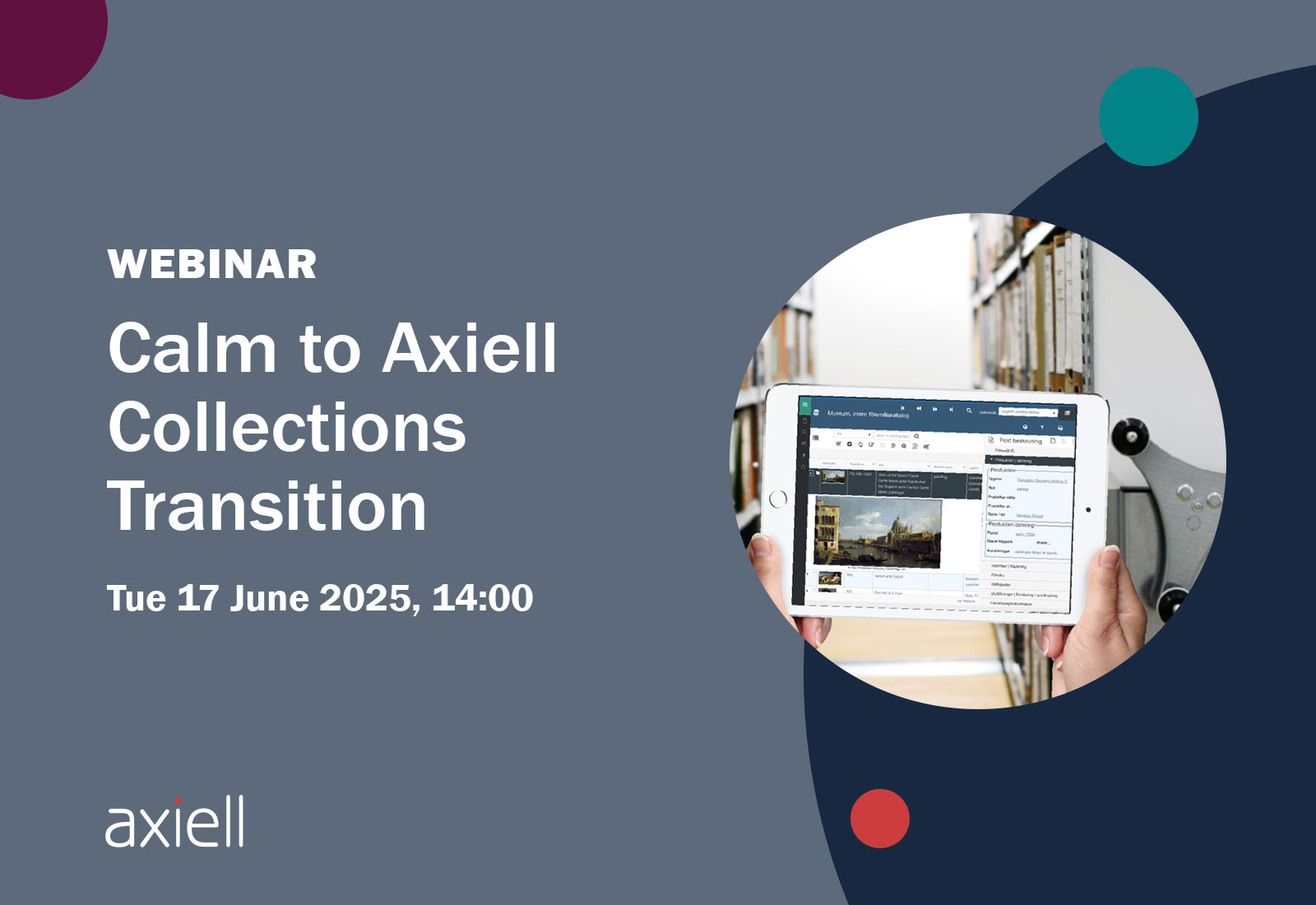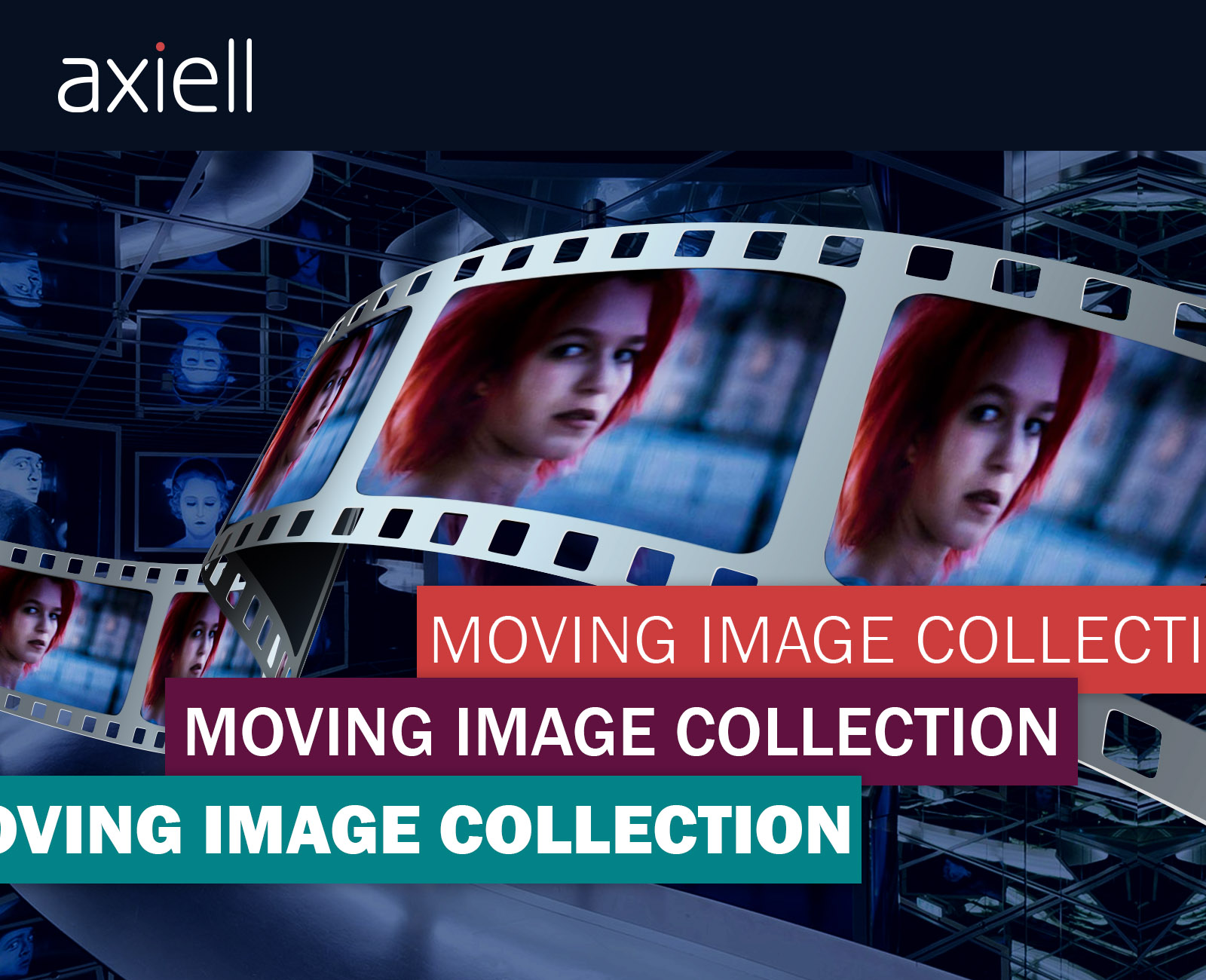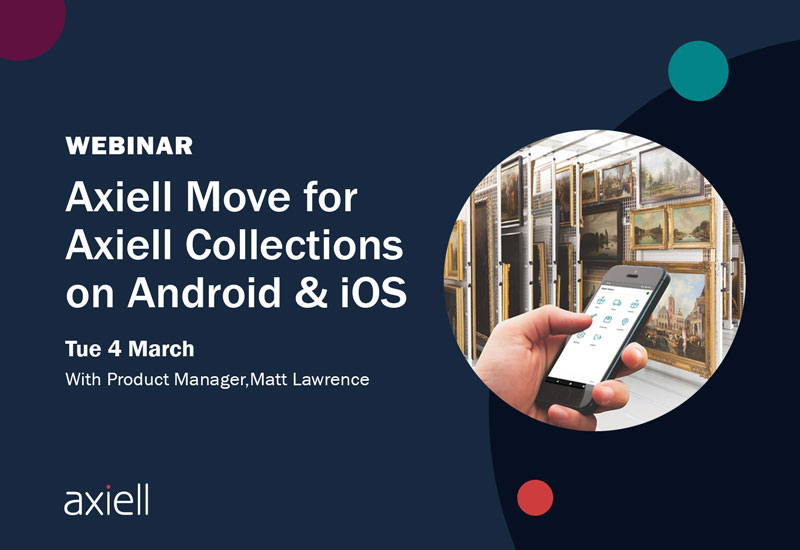Ian Anstice, Public Libraries News:
There’s a sign visible from Manchester Piccadilly Station that says “Everything is Connected”. As I’m waiting for a train back home from a public library meeting or conference there I often see it and realise how true it is in these days of the internet and partnership working. That was not always the case. Back in the old days, one could do one’s library work, keep one’s head down, and not really be aware of anything outside of one’s own public library service or branch. But now there are so many easily reachable examples of good practice and ideas out there, often in new parts of the job unthinkable ten years ago, that it would be unprofessional not to be aware of them. This realisation was what got me into starting Public Libraries News in the first place and, my, I’ve learned a lot and gained a lot from looking up.
Following on from this, I did a speech at the last Axiell User Conference this year on the fact that libraries are “Jacks of all Trades”. In recent years, libraries have taken their mission of giving equality of access to information and to imagination and run with it, moving out into new technologies and fields almost as soon as they have become available. The down side of this is that the sector now does so much (books, e-books, online access, e-resources, pictures, video, streamed content, room hire, work with partners, health, code clubs and even theatre shows) that it’s difficult to keep track of it all. With the danger being that we don’t. Or, even worse, we don’t do as well at any one thing as our competitors in that subject. But our presence in the community is a real strength as we are experts on what is going on. Someone said to me after my presentation that we may not be the best in any sector but what we excel at is connecting people. Never a truer word spoken.
Find out more about our library management solutions
“Our presence in the community is a real strength as we are experts on what is going on”
So how come most library management systems don’t connect and are just glorified holding lists? I think this a holdover from the old days when people came into public libraries as their first port of call for answering a question. Many a librarian back in the 1990s and before settled a pub argument the day after or told a child what the population of a random country was. No more. The public uses the internet as their first information-answering tool of choice now and, much to our shame, public libraries are simply often not thought of for something we once had a near-monopoly on.
If someone asks Google for a book, the fact that their local library has a copy of it simply will not appear on the search results. You’d have to do a separate search of the library’s website to find that out. But to have to do a separate search is no longer good enough if we want to get away from the core user base. The fact that the local library has that book needs to come up on first page of search results. To do this, libraries need to have catalogues that are discoverable via search engines and are linked to a geographical location. And it need not just be library services of course. Reading Museum offers loans boxes to schools and some education library services offer similar services. But the key here is that holdings that are open to the public need to come up on the screen without us demanding the searcher knows to check our website in the first place. Or otherwise that searcher is just going to get their book from somewhere else, even though they’re paying tax for us to have a copy. And that’s no longer acceptable, at least not if we want to keep justifying our budget.

Ah yes, budgets. They’re not getting any bigger and are usually being cut every year or two. There has never been such a prolonged period of pressure in the UK to reduce costs and increase income. This has had a tremendous impact on staffing levels and on what is provided so we need systems that somehow make up for that. And this is great because computers can really come to our aid here because they can be so good at cross-selling. A library management system that not only does the normal stuff (catalogue, acquisitions, inter library loans etc) but goes beyond and really links up all the things that a library does could be dynamite. Imagine a library management system that can not only reserve you a book but can also sell you a show ticket, with everything behind the scenes working as that implies.
“Imagine a library management system that can not only reserve you a book but can also sell you a show ticket, with everything behind the scenes working as that implies”
Such a system needs to be simple, scalable and fast. Simple because it won’t just be professional (or even in some cases paid) library staff using it. Scalable because bespoke solutions are expensive and fast because, well, if they’re not then something else will take your place. The world changes and we should be at the forefront of that change. Not, as is so often the case, lagging behind.
Imaging typing into a search-bar the name of your local town on your catalogue. Now most of what you’ll get is, if you’re lucky, books and maps which have that name as part of their titles. Your system is doing well if that name is also keyworded so other tagged documents come up too. But it should do more than that. It could and should come up with the fact that there’s a local history society there (after all, the library knows about them so it should come up on the search, it’s only helpful), that the library is doing an event on that town and that we hold old pictures of it as well. And that event should be bookable from the same site and those pictures should be viewable then and there. Because otherwise the user may not work out they need us and click somewhere else shinier instead. After all, why shouldn’t they? Amazon, and everyone else, do all they can to keep you on their site and never suggests you leave it.
“We should not gag such ambassadors for our service by not having a “share” button on the catalogue entry. We are connectors, after all”
Oh, and make it shareable as well. Allow whatever that user discovers to be added to their social media and their email. My research on promoting events suggests that “word of mouth” is the most important way of selling something. One person discovers the event (or, in this ideal case, a book or picture) and then tells their friends about it. We should not gag such ambassadors for our service by not having a “share” button on the catalogue entry. We are connectors, after all.
This is something that I am seeing being missed by the sector. There’s much talk of a Single Digital Presence for public libraries. There’s been one report and now another is being written. What it will be, no-one really knows yet, but one suspects it will simply be a website with resources on or, if we’re lucky, an app. Well, that presupposes that the user knows about the website or cares enough to download the app. One suspects that many of our less regular users, and certainly no non-users, won’t and don’t. What they will know about is how to Google it. And we should be there on that results page. We’re missing out on something that private companies do as a matter of course.
“What they will know about is how to Google it. And we should be there on that results page. We’re missing out on something that private companies do as a matter of course”
And that’s a shame because libraries have had, from day one of computerisation, something which our competitors have spent years and uncounted billions on developing: people’s names, addresses and spending (or in our case, reading) habits. We have in the library card the worlds’ first loyalty card. But we simply don’t use that information in any way other than sending a one-size-fits-all publicity email (and sometimes not even that). We can tell exactly what a user is reading and what they’re interested in. So making tailored recommendations, and notification of events they will want to come to should be possible. But we so often don’t.
Look, as said at the start, we live in a connected world. We search online. We speak to friends. We watch a YouTube video and click on a link in its comments. That the online public face that we show the world is not so connected is a massive missed opportunity. Nor should we expect people to come to us or even have us at the forefront of their minds when they’re looking for something. Those days have gone and we lack the billions of pounds that our private competitors can plough into advertising to get them back. What we should have are resources that will be discoverable on the web when someone just types in what they’re after and, vitally, links to relevant stuff once we capture that person’s attention and they enter our domain. That is what every single private company selling to the public does and it’s something that we should do. Because the public is connected. Our job should be that they are, as much as is possible, connected to us.
“Because the public is connected. Our job should be that they are, as much as is possible, connected to us”
So, I’m delighted that when I was speaking at that Axiell User Conference, it turns out Axiell was listening. Much of what I have said is now available, or will be available, in their new library management system. My advice would be to have a look at it. Because perhaps by connecting to them, you and your wonderful resources and services can get connected to everyone.




